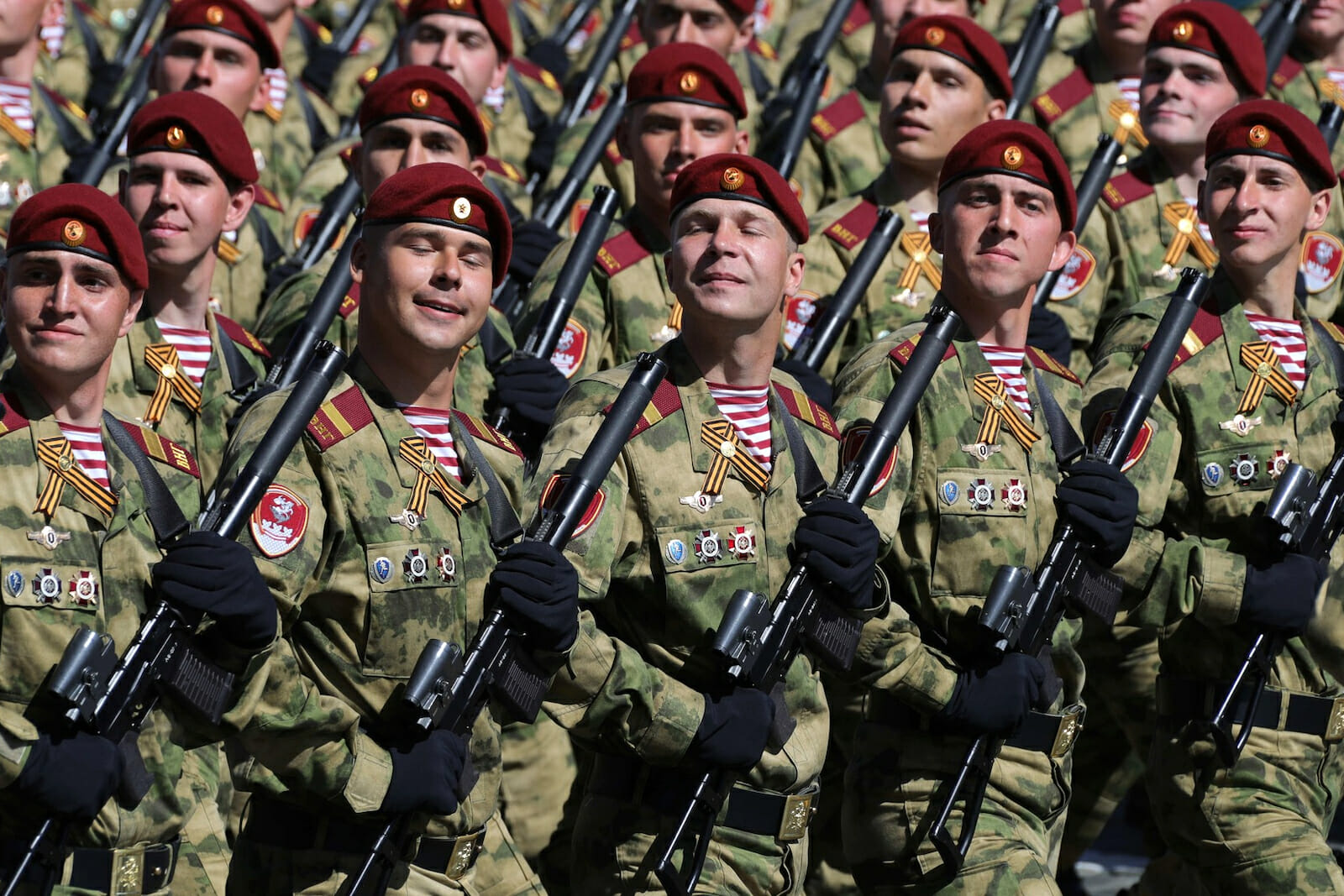
Russia: Managing Thy Neighbor
Is it possible that the EU forced Russia’s hand on the Ukraine issue? That it inadvertently provided Russia with no other choice but to react the way it did? Is it possible that the EU leadership (if any…) is not reading the signs that Russia has awakened and that the era of careless expansion into the ex-Soviet block is over? Whatever the outcome of the present turmoil, we may very well enter into a new era of foreign relations between Europe and Russia, affecting a good number of nations and potentially leading to a second Cold War type relationship.
Russia emerges from hibernation
As Russia recovers from the fall of the Soviet Union and works to find itself as a nation among nations, it has been developing a stronger sense of self and presence on the international arena. Along with Russia’s many honorable and influential titles, such as member of the G8 (now suspended) and Permanent Member of the UN Security Council (heritage of the Soviet Era), this notion that the dark days are behind them has been giving the Russian leadership an appetite for the renewal of Russian power, combined with an ambition of political re-dominance over its’ vast neighborhood and desire to be respected – or rather feared – at its’ borders.
This Ukrainian crisis only proves once more that, although temporarily weakened and in disarray after the fall of the Warsaw Pact, Russia’s foreign policy and national interests have never really changed. Now, by opening up a new politico-cultural dilemma in Ukraine, both Russia and the EU have shown their hands in an East-West struggle that has lasted for generations and was only up-to-recently camouflaged by Russia’s inability to politically or militarily react to the EU’s expansionist policy. For that is what’s most interesting about this Ukrainian episode: it really, for once, indisputably shines the light on the EU’s foreign policy agenda and long-term geopolitical goals. While the EU talks a message of peace and partnership, Russia can only gawk as the European Empire’s flag continues to gobble up ex-territories and satellite nations.
We need to keep in mind that the EU has now already “acquired” most of the ex-Soviet Block.
Poland, Romania, Hungary, Slovakia and the three Baltic States, all border the Russian sphere of influence and used to be either part of the Russian Empire, the Soviet Union or independent non-threatening buffer states; not to mention Finland, an old territory and later enemy of Russia, which is also part of the European Union today and has an eight-hundred and thirty mile (1,340 km) border with its former foe.
In this context, it is hard not to see this Ukrainian affair as the straw that broke the camel’s back.
Russia of 2014 has regained a sense of identity, even though it is often tested. It, however, has a problem with security: it does not feel safe, or simply refuses to feel safe. While it has had to maintain a hold on the largest territory in the world (populated with different ethnic groups and micro-cultures), it has been fighting a long battle against terrorism and separatist movements in Chechnya, while it has always been worried about the Turks and the Chinese as possible threats. Moreover, it has deep down refused to admit that ex-territories and satellite-nations have become independent states with their own interests and partnerships, and now, Europe is undeniably creeping into its front-yard. Granted, it is not the world power it once was, but this time, it’s not having it.
Europe evidently underestimates Russia’s aspirations
The European Union, consciously or not, has clearly disregarded Russia’s long renowned need for friendly and reliable buffer-states around its borders. In doing so, Europe has clearly failed to respect another nation’s non-negotiable needs; needs which John W. Burton defines as security, identity, and recognition of that identity. Ukraine, an integral part of the Russian sphere of influence, is a case in point. It is not news that Ukraine is not only a granary nation for Russia but a strategic partner and the equivalent of a national treasure. Historically, it has provided countless great figures to Russian history, including heads of state during the USSR. While Kyiv, its’ capital city, is culturally the third most important city of the ex-Russian Empire, after Moscow and St. Petersburg. Not to mention that, as Western-Ukraine’s economy is struggling, Eastern Ukraine’s heavy industry is a productive stronghold for the country, while the country itself remains a promise of wealth in natural resources (i.e.: iron ore, steel, and uranium).
Therefore, for the European Union to insidiously reach-out as far as the European continent will let it, having no regard for another major nation’s natural interests and needs, planting the ever-growing European flag wherever it can – even if it means one day planting it above the doors of the Kremlin – unquestionably forces Russia’s hand. So, truly, as we witness a new violent crisis on the European continent and a renewed standoff between East and West, the question on many minds has become: what was Europe thinking? What led the Europeans to believe that Russia would just stand-by? Stand-by as the EU meddled in Ukraine’s state-affairs and forced their hand in accepting to turn their back on Russia?
Where does this error in European foreign-policy originate from?
Many in Europe’s extremist parties, of both the Left and the Right, believe it stems from a gross misunderstanding of Russia and of its history; coupled with the ambitions of the EU as a regional power, which will stop at nothing to expand its reach. Apparently convinced it will find success in blind expansion, the EU seems to be choosing quantity over quality, as its salvation and fool’s guarantee of survival. This unfortunate policy merely weakens the EU; as by not focusing on addressing the real issues of its current members, it is letting the economic situation deteriorate the Union’s overall attractiveness at home and abroad.
This perhaps explains the EU leaders’ current posture of embarrassment and distance. When faced with similar situations before, the US and the EU reacted more vigorously. This time, however, there is a sense that this is a hot-potato that no one wants to handle. Leaving it to the situation to unfold itself and naively hoping that, thanks to NATO threats, well-intentioned speeches, co-declarations, and rather symbolic sanctions, everything will somehow resolve itself. Regrettably, it seems the West’s only resolution in the matter is to make Russia look as much like the villain as possible, sanctioning Russian elite and excluding the country from the G8.
Yet, the question remains, how to remedy this unfortunate situation? Thus forcing us to meditate on previous East-West confrontations and begging a reflection on the lessons learned from those experiences. From Catherine the Great to the Napoleonic Era, from the Cold War to the Georgian crisis, even if it culturally wants to remain a European power, Russia also believes in its own regional preeminence and is obsessed with its need to preserve it, a policy it has always aggressively pursued in order to avoid encirclement. Since in reality, it is encirclement that President Putin fears, as would any Russian leader. When the Bear is against the wall, it has no other choice but to charge at its aggressor. That said, although it seems indeed that the bear was provoked, it is arguably evident that President Putin is taking it a step too far and is seizing the opportunity to serve his country’s post-Soviet ambitions.
So where does that all leave us?
The Ukraine situation clearly benefits no-one. Not only does it weaken an already feeble nation, plagued with economic strife, political uncertainties and an infrastructure that is outdated, it subsequently alienates an important world partner. The East-West border has for years been moving Eastward and has now unmistakably gained on Ukraine, leaving the country practically split-in-half between two worlds. Stalin knew what he was doing when he orchestrated the genocide of some 8 million Ukrainians, to make space for Russians he relocated there. He understood the potential risk of a Western Ukraine and made sure if the question ever arose, the country would be torn by its’ own citizens.
For modern Russia, Crimea alone needed to be safeguarded as a military necessity. Russia needed to guarantee its future access to Sevastopol’s naval bases. This should be understandable to even the most pro-Europeans and fervent anti-Russians out there. Certainly, Russia knows it might not be able to save all of Ukraine for itself. It, however, intends to safeguard as much of the old Russia it can. In addition, Russian leaders also know too well of Ukraine’s considerable financial debt towards Russia and dependence on Russian gas. A fact that leaves any Ukrainian leadership with no other option but to work closely with Russia.
President Putin is well aware that he does not need to invade the rest of the country, as the Eastern part is slowly coming under the control of local separatist militias and the Western part has way too much to lose. Ukraine has currently only two non-Russian options in its future. If it were to try and break away from Russia’s grasp, it would risk losing half its territory. Or, it could try to retake the Eastern part by force, which could lead the Ukrainians into an open armed confrontation with Russia. Either way, if they hope to one day enjoy full independence, Ukrainians would need to drastically reduce their dependence on Gazprom, which is not likely to happen any time soon. In following that same logic, Europe should also be careful of not enraging a nation which provides the very fossil fuel that allows it to heat itself during the long winter months.
Now, as many in Europe fear that this crisis is the beginning of a Russian initiative to regain lost territories, let us keep in mind that Ukraine is not Poland or the Baltic states. Not only is it not a member of the EU, but it also is not a member of NATO and therefore not protected by the organization’s Article 5, which is exactly why Russia feels the need to step in now before it is too late for it to act. We can thus comfort ourselves in the very indisputable fact that Russia knows it would have nothing to gain by starting a war with the entire Western world.
Therefore the only solution, for now, is for Europe to leave Ukraine alone and let it remain part of the Russian sphere of influence. Regardless of personal opinions and politics, Ukraine is simply not ready for the EU and Western Europe has bigger challenges to handle. This does not mean, however, that the era will not come when we shall revisit the subject of Ukraine’s possible candidacy to the EU. It is after all part of the European continent; as is Russia, which in a distant future might want to join as well. Needless to say, we may all hope that one day our species will be united under one flag. In the meantime, however, we need to learn how to better manage our neighbors, if we are to in-time construct a better world for ourselves and the generations to come.

